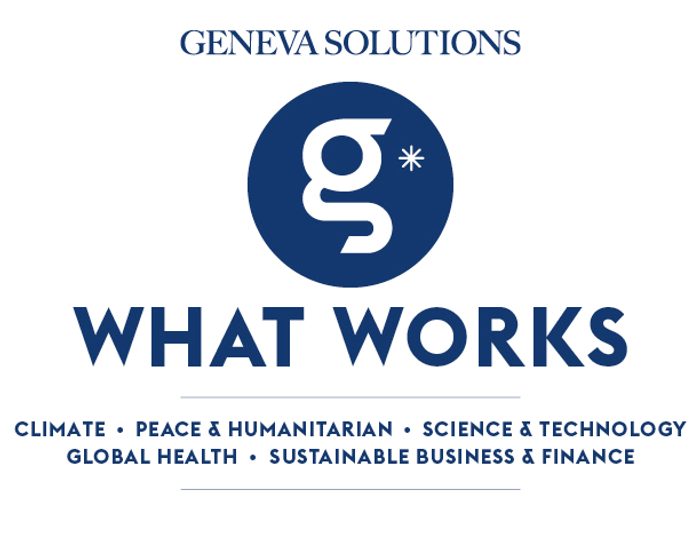Good morning, this is Pip. An international commission of peacebuilding experts, political figures and civil society leaders are meeting in Geneva this week. Their aim? To fundamentally rethink and reshape the world's approach to peace processes. Convened by Interpeace, the group will meet for their second day of talks today. We spoke to one of the commissioners, Somali-Canadian peace activist Ilwad Elman, to get the lowdown. |
|
Ilwad Elman: peace processes need a fundamental rethink
|
|

Ilwad Elman is lead convener on youth, peace and security on the International Commission for Inclusive Peace. (Credit: Ilwad Elman)
|
|
“To me, peace is not just the absence of war,” says Ilwad Elman. “Peace is autonomy and agency. It’s peace within yourself, and the freedom to be a part of the processes that ensure your own wellbeing.”
Thirty-one-year-old Elman is a Somali-Canadian peace activist who works for the Elman Peace and Human Rights Centre in Mogadishu. She is also one of the key figures behind the Principles for Peace, an initiative launched last year and led by Geneva-based organisation Interpeace, that is looking to create a new blueprint for peacebuilding.
The commission of experts helping shape the principles, who include current and former political figures as well as civil society leaders and peacebuilders such as Elman, will meet in Geneva today to discuss their findings so far, drawing on more than 80 consultations carried out in 10 countries.
“We're not necessarily rewriting new standards for peacebuilding, but rather taking stock of everything that we've invested in for decades as a global community through the multilateral system, and recognising that these processes are no longer fit for purpose,” says Elman.
Read more on Geneva Solutions.
|
|
Here's what else is happening
|
|
Stopping the cycle of recurring conflicts.
There are currently over 50 active conflicts in the world today, two-thirds of which are protracted crises of eight years or more. But existing peace processes are proving unfit for purpose. Many processes today are stalled, and even when agreements are struck they tend to be short term, with most peace processes failing on average after seven years. “We can’t keep applying the same old processes and expecting a different result,” says Ilwad Elman in her interview with Geneva Solutions. “We don't have time anymore to not try to invest in something different.”
Principles for Peace (EN)
|
|
|
GS news is a new media project covering the world of international cooperation and development. Don’t hesitate to forward our newsletter!
Have a good day!
|

|
|
Avenue du Bouchet 2
1209 Genève
Suisse
|
|
|
|









